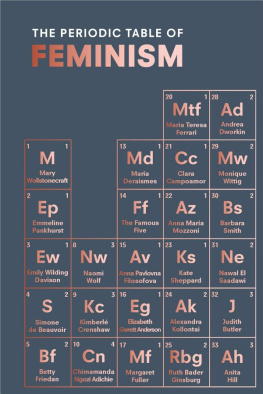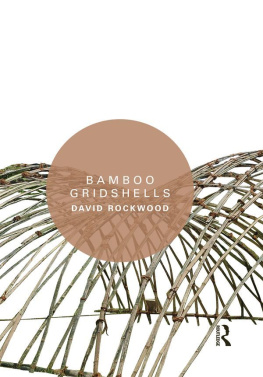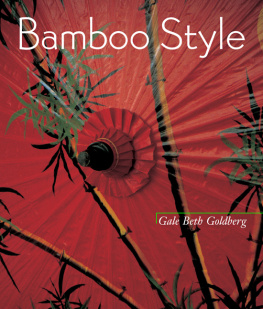Heirs of the BambooEuropean Anthropology in Translation
Published in Association with the Society for the Anthropology of Europe (AAA)
General Editor: Nicolette Makovicky, University of Oxford
This series introduces English-language versions of significant works on the Anthropology of Europe that were originally published in other languages. These include books produced recently by a new generation of scholars as well as older works that have not previously appeared in English.
Volume 8
Heirs of the Bamboo: Identity and Ambivalence among the Eurasian Macanese
Marisa C. Gaspar
Volume 7
Raccomandazione: Clientelism and Connections in Italy
Dorothy Louise Zinn
Volume 6
Hunters, Gatherers, and Practitioners of Powerlessness: An Ethnography of the Degraded in Postsocialist Poland
Tomasz Rakowski
Volume 5
Two Sides of One River: Nationalism and Ethnography in Galicia and Portugal
Antnio Medeiros
Volume 4
The Colours of Empire: Racialized Representations during Portuguese Colonialism
Patrcia Ferraz de Matos
Volume 3
Developing Skill, Developing Vision: Practices of Locality at the Foot of the Alps
Cristina Grasseni
Volume 2
Strangers Either Way: The Lives of Croatian Refugees in Their New Home
Jasna apo mega
Volume 1
Disenchantment with Market Economics: East Germans and Western Capitalism
Birgit Mller
Heirs of the Bamboo
Identity and Ambivalence among the Eurasian Macanese
Marisa C. Gaspar
Translated from Portuguese by Roopanjali Roy
Published in 2020 by
Berghahn Books
www.berghahnbooks.com
English-language edition
2020 Berghahn Books
This book was originally published in Portugal by Instituto do Oriente. Instituto de Cincias Sociais e Polticas da Universidade de Lisboa under the title No Tempo do Bambu: Identidade e Ambivalncia entre Macaenses, 2015 Intituto do Oriente. Instituto de Cincias Sociais e Polticas da Universidade de Lisboa.
All rights reserved. Except for the quotation of short passages for the purposes of criticism and review, no part of this book may be reproduced in any form or by any means, electronic or mechanical, including photocopying, recording, or any informationw storage and retrieval system now known or to be invented, without written permission of the publisher.
Library of Congress Cataloging in Publication Data
Names: Gaspar, Marisa C., author. | Roy, Roopanjali, translator. | Chun, Allen John Uck Lun, 1952 writer of foreword.
Title: Heirs of the Bamboo : Identity and Ambivalence among the Eurasian Macanese / Marisa C. Gaspar ; Translated from Portuguese by Roopanjali Roy.
Other titles: No Tempo Do Bambu. English | Identity and Ambivalence among the Eurasian Macanese
Description: New York : Berghahn Books, 2020. | Series: European anthropology in translation; Volume 8 | Includes bibliographical references and index.
Identifiers: LCCN 2020017480 (print) | LCCN 2020017481 (ebook) | ISBN 9781789208917 (hardback) | ISBN 9781789208924 (ebook)
Subjects: LCSH: MacanesePortugalEthnic identity. | Macau (China : Special Administrative Region)Civilization.
Classification: LCC DP534.M33 G37 2020 (print) | LCC DP534.M33 (ebook) | DDC 305.8/0595106910469dc23
LC record available at https://lccn.loc.gov/2020017480
LC ebook record available at https://lccn.loc.gov/2020017481
British Library Cataloguing-in-Publication Data
A catalogue record for this book is available from the British Library
ISBN 978-1-78920-891-7 hardback
ISBN 978-1-78920-892-4 ebook
Foreword
Allen Chun
In a global context, and even in Portugals imprint on the history of imperial trade, Macau has been relegated to somewhat marginal status. When the British colonized Hong Kong in the mid-nineteenth century, Macau was already an anachronistic ghost of a mercantile colonialism that had been eclipsed within the Portuguese empire by other ports. Its decline accelerated along with the remnants of other Dutch and Spanish outposts. One of the overlooked phenomena in this regard was the cumulative effect of that history and cultural interaction on the ongoing population there. Marisa Gaspars analysis of the Macanese aims to highlight the hybridity of their social experience and cultural outlook, but I would argue that this cultural interaction reflects to a large extent the uniqueness of its coloniality and assimilation as ongoing process.
Methodologically, Gaspar defines the Macanese in literal, ethnic terms, from the ground up and the inside out to society and culture-at-large. The emphasis on the socially tangible and culturally concrete aspects of those experiences prioritizes at the same time the subjective nature of her interpretive inquiry. I highlight this to depict how it differs from the literature on Macau and its hybridity. Jonathan Porters Macau: The Imaginary City describes Macau largely as civilizational encounters between East and West, as inscribed in text and sacralized in historical memory. Christina Chengs Macau: A Cultural Janus recasts the same cultural ambivalence as an abstraction of ideological conflicts rooted in coloniality, politics, religion and literary imagination in ways that contrast with other Chinese-speaking polities. Cathryn Claytons Sovereignty at the Edge: Macau and the Question of Chineseness examines cultural ambiguity and marginality in Macau and their complicated meanings and ramifications for a changing community but in ways that are prompted largely by our current notion of identity, defined paradigmatically by its modernity, assumptions of inherent borders and ethnic content but muddled ultimately by contradictions and overlaps created between national and regional levels. Ambiguities of place reflect in turn on social experience, but starting with subjective narrative sheds a different light on hybridity as process. Is hybridity really ethnic by nature?
Unlike the term Hong Konger, which tends to represent its settled residents (of Chinese ethnic origin, if not other Asians as well who have adopted it as a home), Macanese here refers less to the overall local population of Macau than those of Portuguese and Chinese heritage who have identified with Macau as a primary abode. It literally includes so-called mestizos but without the various racial ramifications of that association. Nonetheless, Gaspar argues that their culturally hybrid lifestyle or ethos is in effect less a refraction of the hybrid nature of Macaus society per se than how the Macanese as a people have subjectively negotiated it.
In this sense, the fact that the Macanese constitute no more than 5 per cent of the population and cannot justifiably represent Macau-at-large thus invokes the more important question of what frame of reference or comparison one should really adopt in this regard. As a hybrid community, one should not really compare it to Hong Kongs cultural hybridity, which was the product of transnationalism and the colonial governments efforts to use its free trade port status to bring about a market society to deflect nationalist tensions in a previous era. Racial stratification became a systemic political order in late nineteenth-century colonialism, more so than in Spanish and Portuguese colonialisms. Thus, from a modern perspective, Macanese hybridity should be seen more as a historical norm than an oddity. In this sense, it should be more comparable to the experiences of the Anglo-Indians and even Peranakan Chinese. The fact that the Macanese have not attracted scrutiny in this respect, then, is testament to the concrete contribution of the current ethnography. It should shine relevant light on a staple paradigm.












